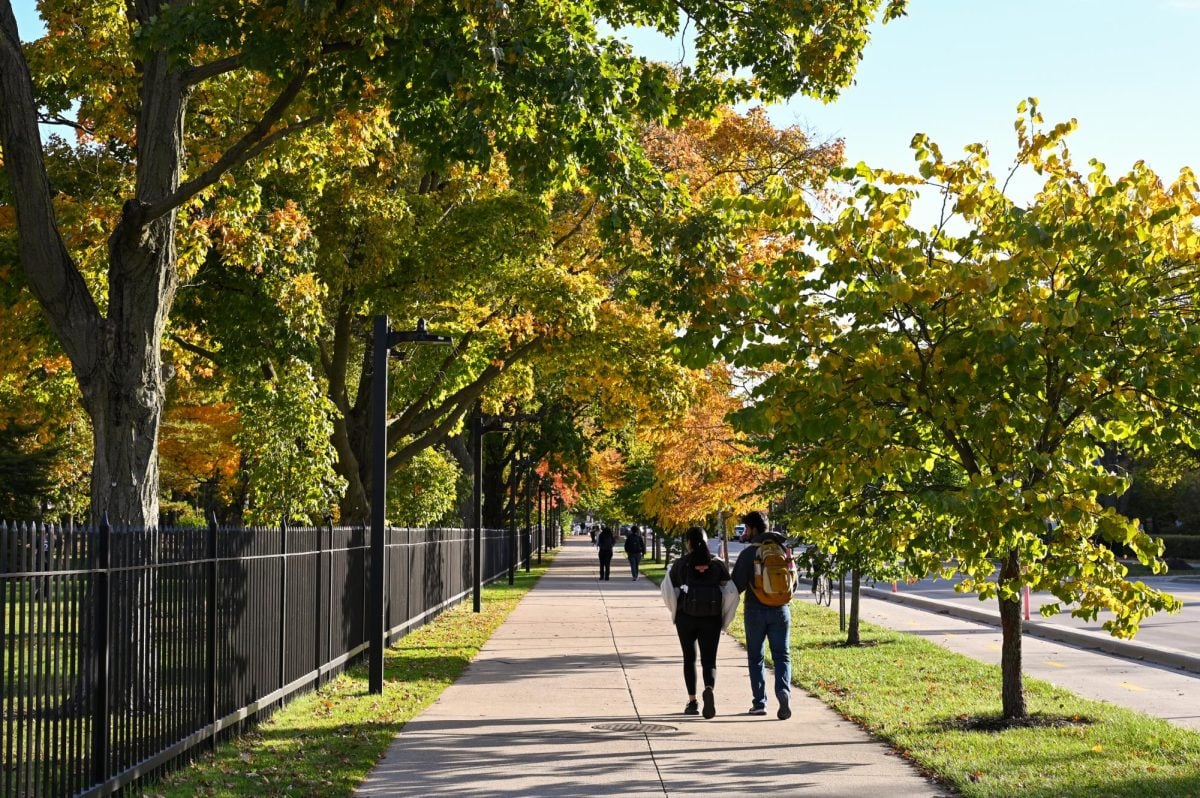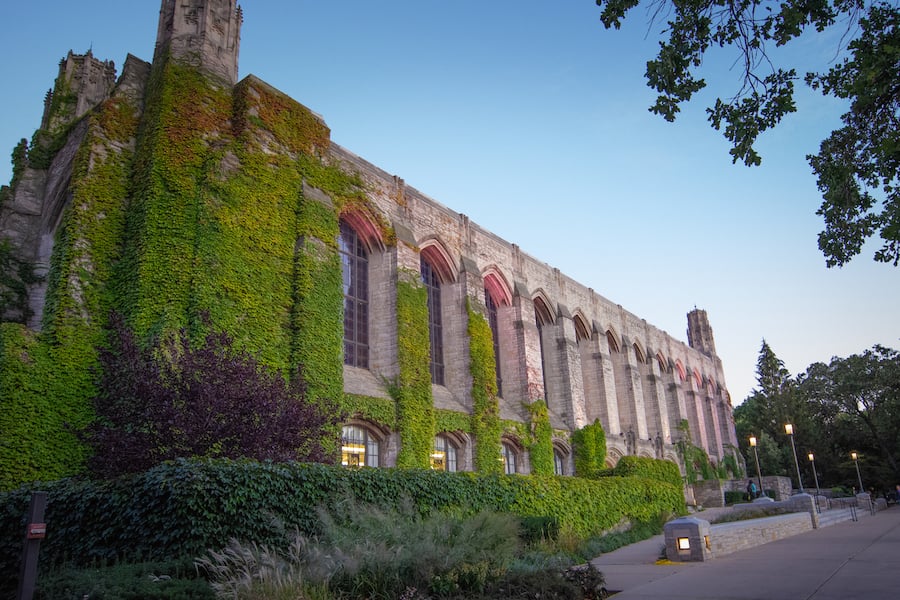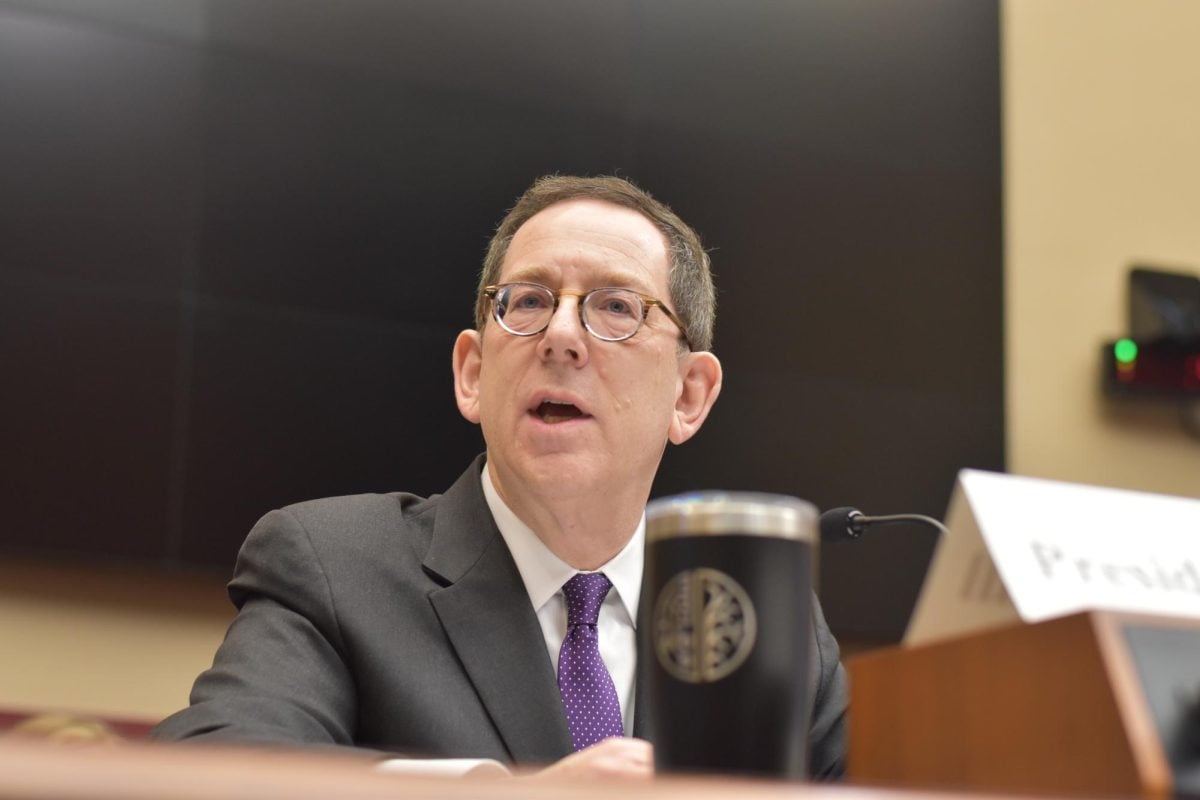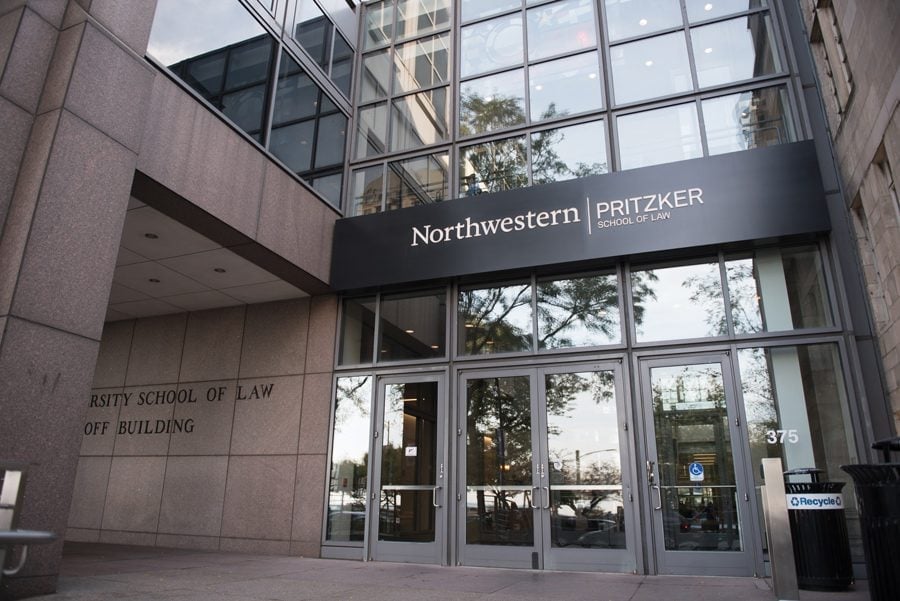Northwestern is moving forward with plans to expand on-campus upperclassmen housing in accordance with the 10-year strategic plan the University unveiled in November.
President Morton Schapiro recently told The Daily that the University hopes to house a larger percentage of undergraduates by adding 1,000 beds, possibly in the form of apartment-style housing on North Campus.
Although the proposal is still in its early stages, University administrators are currently negotiating with the NU Interfraternity Council about the idea of possibly converting shuttered fraternity houses on Lincoln Street into affordable and high-quality housing for upperclassmen, Schapiro said. The University is also considering the property recently vacated by Roycemore School, which moved to a new location on Davis Street this school year, he added.
The incorporation of more on-campus housing for upperclassmen would benefit both students and the University, Schapiro said.
“We own them and they’re safe, they’re nice places, and the only difference that you’ll know is instead of writing your check to some landlord, you’re writing the check to Northwestern,” Schapiro said.
Dean of Students Burgwell Howard said the call for more upperclassmen housing developed from ongoing conversations within NU Student Affairs based on student feedback from a few years ago. Some students noted living off campus creates difficulties in terms of proximity to classes, Howard said.
“There are some students who move off campus because that’s what they think they’re supposed to do,” Howard said. “Then they realize living off campus can be kind of a hassle.”
Weinberg sophomore Matt Sullivan said he plans to share a house next year with 10 other people. He said dealing with his landlord has been “impossible” and that a lack of NU online housing resources made it difficult to find decent housing in the first place.
Other colleges, largely state schools, offer university-subsidized housing to upperclassmen students, which Sullivan said is an area that NU needs to address.
“I don’t know why we haven’t done it already,” Sullivan said.
Sullivan said he would definitely prefer actual houses to communal living. He said he thinks many upperclassmen find living in a house appealing after spending two years in a dorm.
Schapiro said he wants to provide on-campus, apartment-style living, with no community assistants or meal plans, similar to what was available to his students when he was president of Williams College.
Howard said the living experience of the new housing would differ from that of residential colleges and communities such as Allison Hall or Willard Residential College because upperclassmen usually want more independence.
“They’re looking for a residential experience that gives them a little more freedom than their first or second year on campus,” he said.
SESP junior Anneke Hoekstra, who has an apartment on Noyes Street, said she thinks adding on-campus housing is a good idea, as long as it is affordable and offers students the same experience they would get living off campus.
“Personally, I like the responsibilities – the real-life responsibilities,” Hoekstra said. “That’s an important part of growing up and becoming an adult. It helps you cultivate a couple aspects of adult life: paying rent, navigating different sorts of bills, not having a mailroom that takes care of everything for you.”
Impending improvements to on-campus upperclassmen housing come as part of a long-term master plan to improve overall housing at NU, said Julie Payne-Kirchmeier, assistant vice president for Student Auxiliary Services. Both Allison and Elder Residential Community underwent renovations during the past two years and were upgraded to residential communities.
Payne-Kirchmeier said the University plans to conduct a thorough assessment of current on-campus and off-campus housing and student needs before making any final decisions. There is no specific schedule yet for the plans, she said.
“As soon as we have any kind of timeframe in place we will make sure we make the students aware of it and make sure they are involved every step of the way,” Payne-Kirchmeier said.






